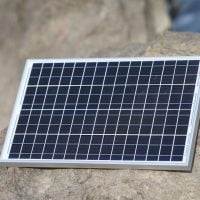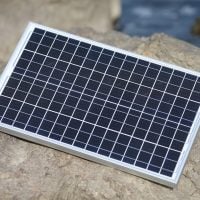In an era where climate change and water scarcity are pressing global issues, solar-powered water projects emerge as a beacon of hope. These initiatives harness renewable energy to provide clean water, making them not only environmentally sustainable but also economically viable. The integration of solar technology into water supply systems can significantly reduce operational costs, especially in remote areas where traditional energy sources are either unavailable or prohibitively expensive.
By utilizing solar energy, communities can ensure a reliable water supply while minimizing their carbon footprint, thus contributing to broader environmental goals. Moreover, solar-powered water projects can enhance resilience against climate variability. In regions prone to droughts or erratic weather patterns, these systems can provide a consistent water source, thereby improving agricultural productivity and food security.
For instance, in parts of sub-Saharan Africa, solar-powered boreholes have transformed the lives of countless families by providing access to clean drinking water and enabling irrigation for crops. This dual benefit not only addresses immediate water needs but also fosters long-term economic development and community empowerment. Are You Working on Solar Innovation or Clean Energy Access? Join us to receive updates.
Researching Available Funding Options
Securing funding for solar-powered water projects is a critical step that requires thorough research and strategic planning. The landscape of funding options is diverse, ranging from government grants to private investments, each with its own set of eligibility criteria and application processes. To begin, it is essential to conduct a comprehensive assessment of the project’s financial needs, including initial setup costs, ongoing maintenance, and potential expansion.
This assessment will serve as a foundation for identifying suitable funding sources. One effective approach is to create a detailed funding matrix that categorizes potential sources based on their requirements, timelines, and funding amounts. This matrix can include government programs, philanthropic foundations, corporate sponsorships, and crowdfunding platforms.
By systematically evaluating these options, NGO professionals can prioritize which avenues to pursue first and allocate resources efficiently. Additionally, staying informed about emerging funding opportunities through newsletters, webinars, and industry conferences can provide valuable insights into new prospects that align with the project’s goals.
Identifying Government Grants and Incentive Programs
Government grants and incentive programs are often the most accessible funding sources for solar-powered water projects. Many countries have established initiatives aimed at promoting renewable energy and improving water access, particularly in underserved communities. To tap into these resources, it is crucial to understand the specific programs available at local, regional, and national levels.
This may involve researching government websites, engaging with local authorities, and connecting with other NGOs that have successfully navigated the grant application process. For example, in the United States, the Department of Energy offers various grants for renewable energy projects, including those focused on solar technology. Similarly, many states have their own incentive programs that provide financial support for solar installations.
By leveraging these grants, NGOs can significantly reduce the financial burden of implementing solar-powered water systems. Furthermore, understanding the eligibility criteria and application deadlines is vital to ensure timely submissions and increase the chances of securing funding.
Exploring Corporate and Nonprofit Sponsorship Opportunities
Corporate sponsorships can play a pivotal role in financing solar-powered water projects. Many companies are increasingly recognizing the importance of corporate social responsibility (CSR) and are eager to partner with NGOs that align with their values. By approaching corporations that have a vested interest in sustainability or community development, NGOs can create mutually beneficial partnerships that provide financial support while enhancing the company’s public image.
For instance, a beverage company may be interested in sponsoring a solar-powered water project in a region where they source their ingredients. In return for their investment, they could gain positive publicity and strengthen their brand loyalty among consumers who prioritize sustainability. To effectively engage potential sponsors, NGOs should develop compelling proposals that outline the project’s impact, visibility opportunities for the sponsor, and how their contribution will make a tangible difference in the community.
Utilizing Crowdfunding and Community Fundraising
Crowdfunding has emerged as a powerful tool for financing social initiatives, including solar-powered water projects. Platforms like GoFundMe, Kickstarter, and Indiegogo allow NGOs to reach a global audience and raise funds through small contributions from individuals who resonate with their cause. To maximize success in crowdfunding campaigns, it is essential to craft a compelling narrative that highlights the project’s significance and potential impact on the community.
Engaging storytelling is key; sharing personal stories from community members who will benefit from the project can create an emotional connection with potential donors. Additionally, utilizing social media to promote the campaign can amplify its reach and encourage sharing among networks. Community fundraising events can also complement online efforts by bringing people together to support a common cause while fostering local engagement and ownership of the project.
Leveraging International Aid and Development Funds
International aid organizations and development funds are another vital source of financing for solar-powered water projects. Many global entities prioritize sustainable development goals (SDGs) related to clean water access and renewable energy. By aligning project objectives with these goals, NGOs can position themselves as suitable candidates for funding from international bodies such as the United Nations Development Programme (UNDP) or the World Bank.
To effectively leverage these funds, NGOs should familiarize themselves with the specific requirements and application processes of each organization. This may involve attending workshops or training sessions offered by these entities to better understand their priorities and expectations. Additionally, building relationships with representatives from these organizations can provide valuable insights into upcoming funding opportunities and enhance the likelihood of successful applications.
Partnering with Local Utilities and Energy Companies
Collaborating with local utilities and energy companies can provide significant advantages for solar-powered water projects. These entities often possess valuable expertise in energy management and infrastructure development that can enhance project implementation. Furthermore, they may have access to additional funding sources or incentives that can be leveraged to support the initiative.
For example, a local utility company may be interested in investing in renewable energy projects as part of its sustainability goals. By forming a partnership, NGOs can benefit from technical assistance, shared resources, and potentially even co-funding arrangements. Establishing these partnerships requires clear communication about mutual benefits and aligning project objectives with the utility’s mission to ensure a successful collaboration.
Applying for Loans and Financing from Financial Institutions
While grants and donations are essential for funding solar-powered water projects, loans from financial institutions can also play a crucial role in bridging funding gaps. Many banks and credit unions offer specialized loan products for renewable energy projects that come with favorable terms such as lower interest rates or extended repayment periods. To access these loans, NGOs must prepare comprehensive business plans that outline project feasibility, expected returns on investment, and risk management strategies.
Engaging with financial institutions early in the project planning process can help NGOs understand their lending criteria and tailor their proposals accordingly. Additionally, demonstrating a strong track record of successful project implementation can enhance credibility and increase the likelihood of securing financing. By strategically combining loans with other funding sources, NGOs can create a robust financial framework that supports sustainable project development.
Seeking Support from Environmental and Conservation Organizations
Environmental and conservation organizations often have missions aligned with promoting sustainable practices and protecting natural resources. These organizations may offer grants or technical assistance for solar-powered water projects that contribute to environmental conservation efforts. By identifying potential partners within this sector, NGOs can tap into additional resources that enhance project viability.
For instance, an environmental organization focused on preserving freshwater ecosystems may be interested in supporting a solar-powered water project that reduces reliance on unsustainable water extraction methods. Collaborating with such organizations not only provides financial support but also adds credibility to the project by associating it with established environmental initiatives. Building relationships through networking events or joint advocacy efforts can facilitate these partnerships.
Networking with Industry Experts and Solar Energy Associations
Networking within the solar energy sector is essential for NGOs seeking to implement solar-powered water projects successfully. Engaging with industry experts and associations can provide valuable insights into best practices, emerging technologies, and potential funding opportunities. Attending conferences, workshops, or webinars focused on renewable energy can facilitate connections with key stakeholders who share similar goals.
Moreover, joining solar energy associations can offer access to resources such as research reports, training programs, and collaborative initiatives that enhance project implementation capabilities. By actively participating in these networks, NGOs can stay informed about industry trends and innovations that may benefit their projects while also establishing themselves as credible players within the renewable energy landscape.
Developing a Comprehensive Funding Strategy for Solar-Powered Water Projects
Creating a comprehensive funding strategy is crucial for ensuring the long-term sustainability of solar-powered water projects. This strategy should encompass a diverse range of funding sources to mitigate risks associated with reliance on any single source of income. By combining grants, corporate sponsorships, crowdfunding efforts, loans, and partnerships with local utilities or environmental organizations, NGOs can create a robust financial framework that supports project implementation.
Additionally, regularly reviewing and updating the funding strategy based on changing circumstances or emerging opportunities is essential for maintaining momentum. Engaging stakeholders throughout this process—such as community members, local governments, and potential funders—can foster collaboration and ensure alignment with community needs. Ultimately, a well-developed funding strategy not only secures necessary resources but also enhances the overall impact of solar-powered water projects on communities facing water scarcity challenges.
If you’re exploring avenues to secure funding for solar-powered water projects, you might find it beneficial to consider related opportunities in water management and innovation. For instance, the article on Small Surface Water and Groundwater Storage Projects in the United States provides insights into funding options for water storage initiatives. This could be particularly relevant if your solar-powered project involves aspects of water storage or management, as it highlights potential funding sources and strategies that could be adapted to your specific needs.









































